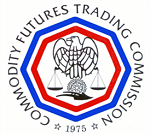
Office of External Affairs
Three Lafayette Centre
1155 21st Street, NW
Washington, DC 20581
202.418.5080
 |
Commodity Futures Trading Commission
Office of External Affairs Three Lafayette Centre 1155 21st Street, NW Washington, DC 20581 202.418.5080 |
|
|
Remarks
|
||
OPENING REMARKS—CFTC COMMISSIONER LUKKEN
GLOBAL MARKETS ROUNDTABLE
CFTC Headquarters — Washington, DC
December 13, 2005
I want to welcome everyone to the CFTC’s Global Markets Roundtable. Today’s topic for discussion is derivatives market access between the U.S. and Europe, and we are thrilled to have the Chairman of the Committee of European Securities Regulators, Arthur Docters van Leeuwen, kicking off that discussion.
The United States/European Union economic relationship is the largest in the world and still growing. Bilateral trade between the EU and U.S. amounts to over $1 billion a day. Direct investment between our economies is even more substantial, totaling over $1.8 trillion a year. This economic relationship creates jobs for nearly 6 million workers on each side of the Atlantic. The EU/U.S. link accounts for 57 percent of the world GDP and 40 percent of all global trade. Despite the difficult trade negotiations that we read about in the papers between the Europeans and Americans, these differences are dwarfed by the positive trade story that occurs between these partners everyday. And with the further advancement and integration of our financial sectors, capital flows across the Atlantic represent a significant and growing part of this bilateral activity.
This is why today’s meeting is so important and why the globally-driven derivatives industry can play a leading role in the broader US/European economic dialogue. The interest for today’s industry roundtable grew from an earlier meeting hosted by CESR and the CFTC in Paris last spring. Our then Acting Chair, Commissioner Brown-Hruska, and I participated in this ground-breaking dialogue between regulators and industry, which ultimately led to an agreement between the CFTC and CESR to work together on ways to improve derivatives market access between Europe and the U.S. The CFTC and CESR so understood the importance of robust industry involvement to a successful dialogue that they included it as a component to the communiqu� itself. Today’s roundtable provides us with an excellent opportunity to hear some of the industry’s concerns and it will hopefully yield ideas and assurances as the CFTC and CESR continue our discussions.
To begin this roundtable, we are honored to have the Chairman of CESR Arthur Docters van Leeuwen to provide us with background on CESR and to discuss the need for and progress of the CESR/CFTC work program. In addition to his leadership role at CESR, Arthur has served with distinction as chairman of the Executive Board of the Netherlands Authority for the Financial Markets (AFM) since September 1999. Before joining the AFM, Arthur was Chairman of the Board of Procurators General, headed the Dutch Internal Security Service, and has served the Dutch public in several other capacities throughout his career. He studied law at the University of Utrecht, specializing in constitutional and administrative law. I welcome him and look forward to his insightful comments.
Next Wim Moeliker, a senior officer with CESR, will provide us with an update on the transparency project that grew from this work program. After his presentation and our ensuing roundtable discussion, I have asked Andrea Corcoran, head of the CFTC’s international office, to conclude with a summary of the next steps needed.
As our second agenda item, we are thrilled to have Anthony Belchambers, executive director of the European-based Futures and Options Association, to give a presentation on a report entitled: “The Transatlantic Dialogue in Financial Services: The Case for Regulatory Simplification and Trading Efficiency.” Anthony is a well-known figure in the European and U.S. derivatives community with a distinguished and varied background in the financial and governmental sectors. His presentation of this important report, sponsored by the City of London and a variety of global financial service trade associations, including FOA, FIA and SIA, lays out areas where the U.S. and Europe can make improvements to facilitate financial trade across the Atlantic. Some of these ideas are complimentary to the CESR/CFTC discussion and we look forward hearing his important presentation.
Lastly, Arthur Hahn will bring closure to a topic that we have discussed at previous global market meetings—the need for reform of the segregated/secured fund regime. After significant consultation with the industry, Arthur will summarize the industry’s discussion and provide us with the conclusions resulting from this dialogue. I want to thank Arthur and all those involved with this important but thankless exercise and I look forward to his report.
I would like to ask my fellow Commissioners whether they have any comments or remarks before we begin.